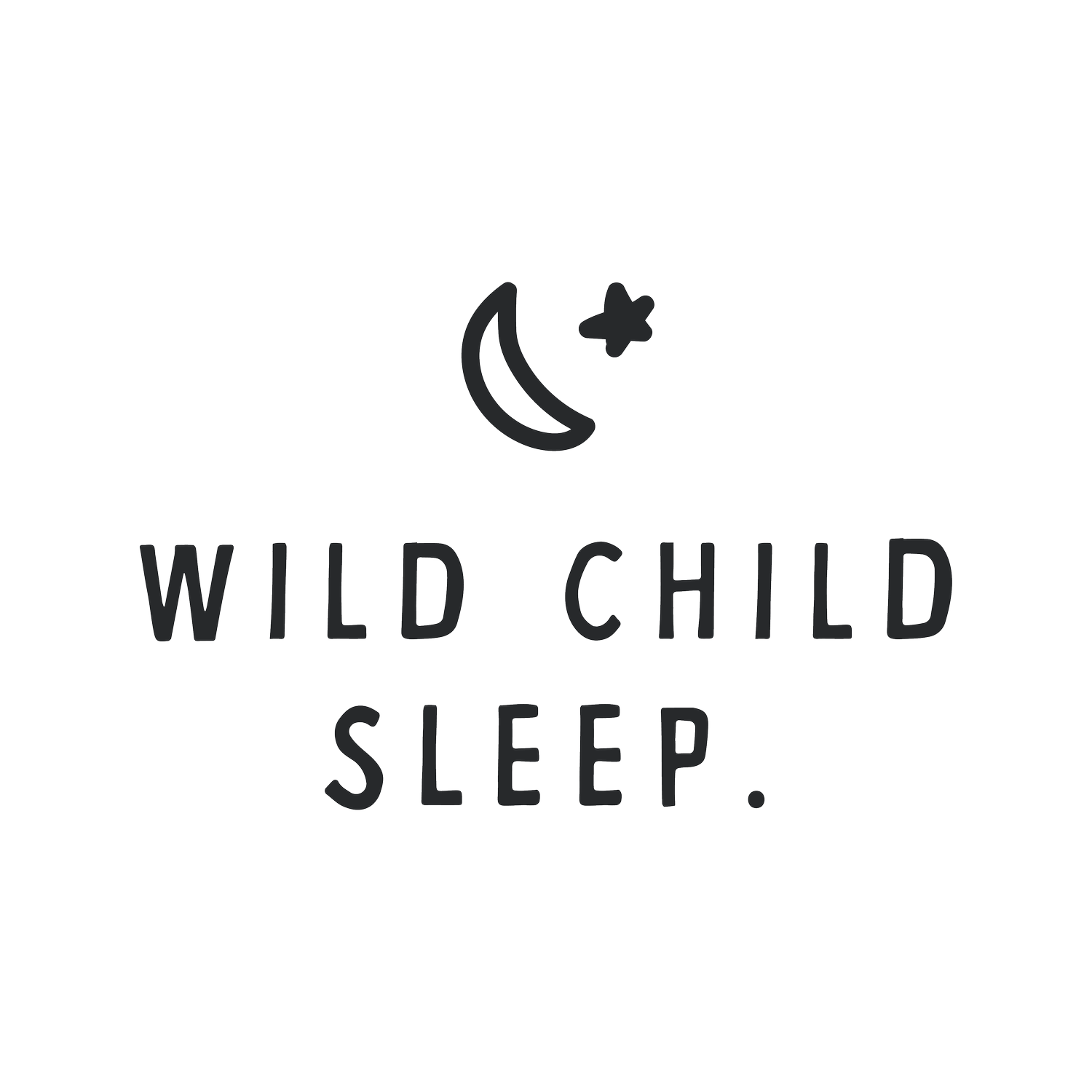The Sleep Secret No One Tells You: It’s All About Rhythm, Not Rigidity!
When it comes to sleep in years 0-3, sometimes it’s less complicated than you think. A lot less complicated than you think. The majority of families I work with don’t have babies with major sleep problems… they have babies whose natural internal rhythms are out of sync with the world around them. When their natural rhythm is supported, these babies' sleep "problems" often fade away into more manageable sleep for everyone.
Here’s the best part: it doesn’t take complicated schedules, leaving your baby to cry it out, or stressful night weaning. It’s so much simpler than that! By understanding and gently nudging your baby's own biological clock, you can unlock more peaceful nights and more predictable days. Keep reading to learn how to support your baby’s circadian rhythm and start getting better sleep for the whole family.
In this post we’ll dive into:
What is a circadian rhythm? (And why it's your new favorite sleep word!)
What’s up with my newborn’s sleep? (Hint: They're still learning the rules!)
How can I help my baby sleep better without sleep training? (Simple, powerful strategies)
Is my baby’s sleep normal? (Releasing the pressure to be "perfect")
Want to skip straight to personalized help? Book a sleep consult with Robin today!
What is a Circadian Rhythm?
A circadian rhythm, sometimes called a biological clock, is our body’s natural sleep-wake cycle. Think of it as your body's internal conductor, orchestrating a daily symphony of sleepiness and wakefulness. This incredible internal clock runs on roughly a 24-hour cycle and influences far more than just sleep – it impacts our hormones, metabolism, body temperature, and even our mood.
Many things influence our biological clock, but the most powerful "zeitgeber" (or "time-giver") for humans is light. Our eyes have special receptors that detect light, signaling to a part of our brain called the suprachiasmatic nucleus (SCN) – our body's master clock – whether it's day or night. This signal then dictates the release of hormones like melatonin (which makes us feel sleepy) and cortisol (which helps us wake up and feel alert). Beyond light, other cues like meal times, social interaction, physical activity, and routine also play a supporting role in keeping our internal clock synchronized with the outside world.
Newborns sleep best when held skin to skin with a caregiver.
What’s up with my newborn’s sleep?
Here’s the honest truth: newborns do not have a mature circadian rhythm. In fact, the hormones involved in a more mature sleep-wake cycle (like that trusty melatonin we just talked about) don’t begin to mature until around 8-14 weeks of age. This means your sweet, tiny newborn isn't operating on a day/night schedule like you are.
So, when your newborn wakes frequently, it's not some grand conspiracy or a sign they're "bad sleepers." Their sleep-wake patterns are entirely related to their immediate biological needs. They’ll wake if they’re hungry (their tiny tummies empty quickly!), thirsty, wet, dirty, cold, hot, lonely, or just need the reassuring comfort of a snuggle. Their drives are primal and essential for survival.
It’s not so much that they have their days and nights mixed up as they simply don’t know that there is such a thing as nighttime or daytime. Imagine spending nine months in a consistently dark, warm, muffled environment – that's their reality until birth! They emerge into a world full of dazzling light, varying sounds, and changing temperatures, with no innate understanding of a 24-hour cycle. Their tiny brains are literally just trying to figure out which end is up! This explains those bewildering moments when they're wide-eyed and ready to play at 3 AM but sound asleep during what you'd consider prime awake time. It's not defiance; it's simply their brain playing catch-up.
Feeding to sleep is one of the easiest and most natural ways to help your baby fall asleep while feeling safe and comforted.
How can I help my baby sleep better without sleep training?
This is where the magic happens, and it's simpler than you might think! While newborns don't have a developed rhythm, you can gently begin to lay the groundwork for one. And for older babies (typically 2-4 months and beyond), these strategies become incredibly powerful for helping their emerging circadian rhythm mature and flourish.
Even when your baby is old enough to have a more developed biological clock, they might still be experiencing night wakes, early waking, or short naps. Often, these aren't "sleep problems" but rather indicators that their circadian rhythm needs a little gentle nudging back into sync.
Here's how to support your baby's natural rhythm:
Embrace the Power of Light (Your #1 Tool!):
Morning Wake-Up Call: As soon as your baby wakes for the day, expose them to bright, natural light. Open the curtains wide, take them by a window, or even step outside for a few minutes. This signals to their brain, "Hey, sun's up! Time to be awake!" This morning light exposure is crucial for setting their internal clock.
Daytime Brightness: Keep your home well-lit during the day. Exposure to natural light during wake windows reinforces the "daytime" signal.
Evening Wind-Down: As evening approaches, start dimming the lights. Use lamps instead of overhead lights. Avoid bright screens (phones, tablets, TVs) in the hour or two before bedtime, as the blue light emitted from these devices can suppress melatonin production. Create a cozy, cave-like atmosphere that tells their body, "Night is coming, time to wind down."
Nighttime Darkness: During night wakings, keep things as dark as possible. Use a dim red or amber night light if needed, just enough to see for diaper changes or feeds. Avoid turning on bright overhead lights, as this can confuse their emerging circadian rhythm and signal "daytime."
Harness the Consistency of Routine (Not Rigidity!):
Predictable Order, Not Strict Times: Babies thrive on predictability. Establish a simple, consistent bedtime routine that happens in the same order every night: bath (if it’s not overstimulating), pajamas, feeding, story/cuddles, bed. This sequence of events cues their body that sleep is coming, regardless of the exact minute.
The Rhythm of Your Day: While rigid schedules aren't necessary, a general rhythm to your day can be helpful. This means noticing your baby's cues for hunger, sleepiness, and wakefulness and responding to them in a generally predictable flow. Your baby's body loves patterns, and consistent routines help them predict what's coming next.
Optimize the Sleep Environment:
Darkness for Sleep: For naps and nighttime sleep, a truly dark room is your best friend (especially for babies 3+ months). Blackout curtains or shades can make a huge difference in preventing light from disrupting melatonin production and signaling "wake up" too early.
Cool & Comfortable: Maintain a comfortable room temperature, typically between 68-72°F (20-22°C).
White Noise: Consistent white noise can help block out stimulating household sounds that might otherwise disrupt sleep, creating a soothing and predictable sleep environment.
Feel like you’re already doing all the right things, but there’s still a problem? Book a sleep consult with Robin for personalized support and better sleep for the whole family.
Natural lighting is ideal, even during daytime naps. Try keeping the blackout curtains OPEN during daytime naps. No more hiding in a dark room! *Unless that is truly what YOUR baby needs.
Is my baby’s sleep normal?
This is perhaps the most crucial section for maintaining your sanity! Let go of the idea of a "perfect" sleeper, because biologically normal infant sleep is often quite varied and full of shifts.
What IS Normal:
Frequent Night Waking (Especially for Newborns): Newborns need to wake frequently for feeds due to their tiny stomachs and rapid growth. Even older babies will wake due to hunger, developmental leaps, teething, illness, or simply needing comfort and reassurance. It's about survival and attachment.
Short Naps (At Any Age): Many babies take short naps (even as little as 15-20 minutes). This is completely normal at any age! There's no research to support babies needing a specific nap length or the need to "connect sleep cycles" during a nap. If your baby wakes from a short nap and seems generally content, happy, and well-rested, then that nap was sufficient for them. Don't feel pressured to force longer naps if your baby is otherwise thriving.
"Sleep Regressions" (Actually Progressions!): Around 4 months, 8-10 months, 12 months, and 18 months (and sometimes others!), you might notice sleep disruptions. These aren't regressions; they're progressions! Your baby is hitting massive developmental milestones (rolling, sitting, crawling, walking, talking, object permanence, separation anxiety), and their brain is just too busy to stay asleep. It's a sign of healthy development.
Fluctuating Sleep: A baby's sleep is rarely linear. Just when you think you've got it figured out, something changes! Be prepared for shifts and phases.
Needing Support to Sleep: It is biologically normal for babies to need help falling asleep. Whether it's feeding to sleep, rocking, bouncing, or cuddling – these are all valid and common ways babies fall asleep. Independence in sleep is a learned skill that develops over time, not an innate ability.
What is NOT (Necessarily) Normal (and might warrant a check-in with your pediatrician or lactation specialist):
Extreme Fussiness or Crying All the Time: While babies cry, persistent, inconsolable crying (especially when not easily soothed by typical comfort measures) could indicate an underlying issue like reflux, allergies, or discomfort.
Inability to Sleep at All (Beyond Typical Waking): If your baby genuinely struggles to fall asleep for extended periods even when tired, or if they seem in distress during sleep, it's worth investigating.
Concerns About Weight Gain or Development: If frequent waking is leading to concerns about your baby's feeding, weight gain, or overall development, always consult your pediatrician.
Parental Burnout to a Dangerous Degree: While sleep deprivation is part of the package, if you are feeling truly unsafe, unable to function, or experiencing severe mental health struggles due to lack of sleep, please reach out for professional support (your doctor, a therapist, or a trusted friend/family member). Your well-being matters too.
By understanding and respecting your baby's developing circadian rhythm, you can create an environment that gently guides them towards more settled sleep, without the stress of rigid rules or emotionally draining "training" methods. Embrace the journey, trust your instincts, and remember: you're doing great, and better sleep for your whole family is within reach!
Still looking for help with your baby’s sleep? Book a sleep consult today!





